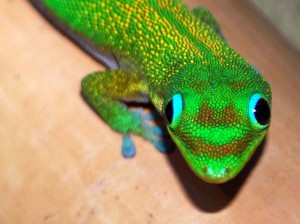Outlook grim for orbiting Russian zero-G sex geckos
Ars Technica » Scientific Method 2014-07-25
Russian space agency Roscosmos issued a number of statements earlier today indicating that their Foton-M4 satellite is in trouble. According to Russian state-owned news agency ITAR-TASS, the scientific research satellite with its payload of experiments is still sending back telemetry, but it's unresponsive to commands sent from the ground. In a separate report, ITAR-TASS quotes a Roscosmos representative as saying that Foton-M4 is designed for "durable autonomous operation," but the lack of ground control jeopardizes the experiments slated to be carried out on board the Foton-M4—not to mention the health of its living cargo.
Foton-M4 was launched on July 19 carrying five geckos—small lizards that favor tropical and subtropical climates (and, apocryphally, sell insurance). The lucky lizards—one male and four females—were sent into their 575-kilometer low earth orbit in order to study the effect of microgravity on their reproductive habits, with scientists monitoring their behavior through a video downlink to the ground.The lizards aren’t joining the 357-Mile High Club alone; the satellite is carrying an additional biological payload of flies, plant seeds, and assorted microorganisms, along with 850kg of scientific instrumentation to support 22 experiments.
Read 5 remaining paragraphs | Comments
